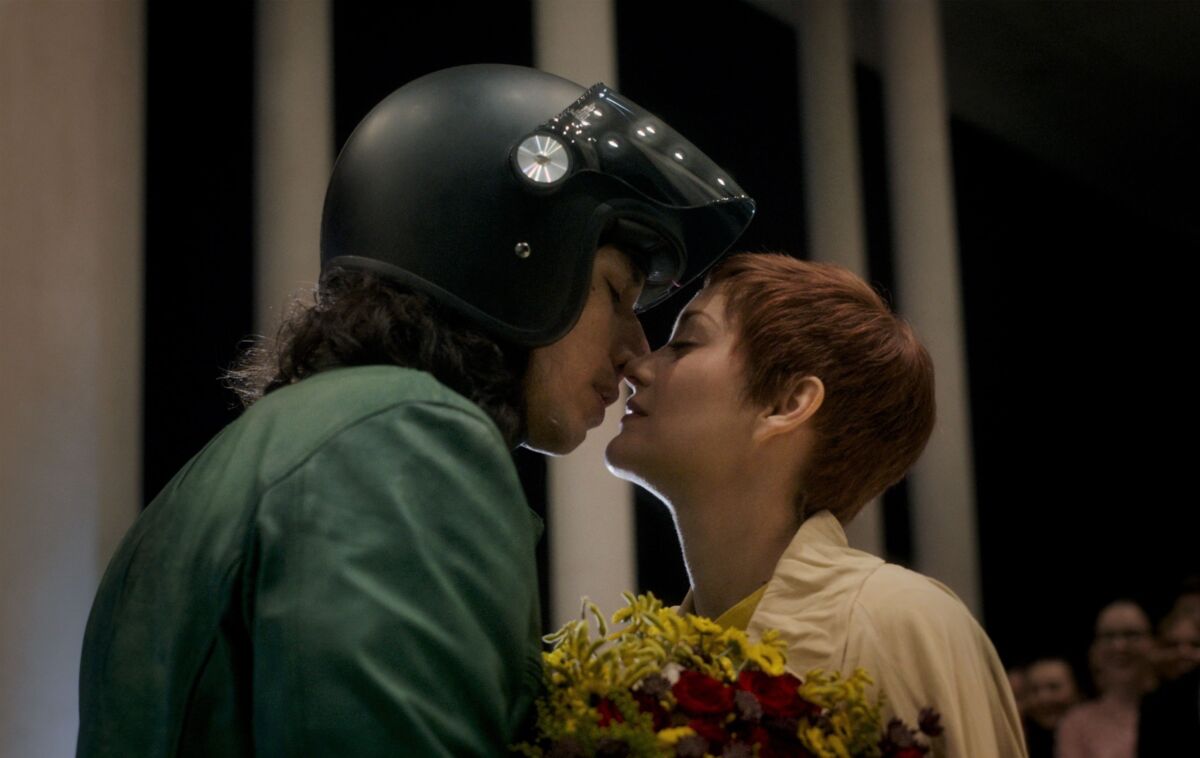Bertolt Brecht was a German theatre practitioner who devised what we now know as Brechtian theatre. Brecht believed that theatre wasn’t about mimicking real life, so his plays would be insistent on breaking the fourth wall, and the audience, instead of being drawn into the events, would remain external to it, and objectively view the play as what it is – a work of art.
It isn’t often that I see such elements in mainstream films, as even in the ones that attempt to be meta (Ferris Bueller’s Day Off and Deadpool comes to mind), realism is still the mode of operation. Yet here we are with Leos Carax’s Annette, which shows you the real actors at the very beginning of the film before they embark to take on the roles assigned to them. If you went to google Brechtian theatre right now and read through the list of techniques that it uses, this is Annette in a nutshell. Based on the synopsis, you might think that this some new version of A Star is Born, but believe me, it’s not. It’s imperative that you know this before you dive into Annette, as its runtime of 140 minutes requires investment, especially since it’s a film that wishes to alienate you.
Adam Driver plays Henry McHenry, a comedian who is dating opera singer Ann (Marion Cotillard). The two have a whirlwind romance, which is charted through frequent tableaus framed like tabloid news. The film is really a vehicle for Driver, because he gets to do everything. It’s a richly experimental role, and Driver embraces it with glorious abandon. You will see him writhing on stage, singing in a marvellous monotone to songs with enchanting lyrics such as “I’m not that drunk”, as well as embodying the dark portrayal of a dangerous lover.
Fans of Driver will certainly get a lot out of it, as things are immensely entertaining while he’s on screen. You may understand none of it, but will be able to appreciate his absolute commitment to it all. After all, this is a movie where the actors sing while engaging in faux lovemaking, and animatronic puppets take the place of real children. Watching Driver, Cotillard and Simon Helberg (who plays the conductor and Ann’s former love interest) ferry around baby Annette as if she’s a real child, I was caught between laughter and fascination. And that’s precisely what Annette is – mischievous and oh so thrilling.
There are some exquisitely beautiful visuals in the film, like when Driver and Cotillard drunk waltz in a storm, baby Annette’s concerts, and the scenes where we are taken through Ann’s world of operatic drama. I have to say that my favourite scene is Helberg’s, a extended sequence where we’re caught between the melodious flows of his conducting and narration. This is one of the rare films where the platform is truly suitable, since watching it on Amazon Prime allows you to go back and rewatch some of these riveting scenes — I know I certainly did. While the three actors do incredible work, I do feel like Ann’s narrative is lost in the tempest that is Henry’s character and narrative. Despite the tragedy that surrounds her, her voice and presence in the film is largely forgettable. Perhaps that is the point.
Director Carax gives us pointed symbolic references, starting from the mention of “Bluebeard’s castle” to the rather on the nose moment where Ann gazes into a mirror, holding an apple with a bite taken out of it. The Bluebeard allusion is to a folktale about a wealthy man who had the habit of murdering his wives, while the reference to Snow White could indicate Ann stuck in a narrative where she is at Henry’s mercy. Ann is swept up in Henry’s love because it is grand and he is larger than life, and forgets the conductor who pined for her. She wanted the danger, the thrill, and Henry wanted to possess her and own her.
When he shares stories about his marriage with the crowd at his performances, it’s clear that he feels suffocated and trapped. Also, the juxtaposition in his and Ann’s careers just leads to even more resentment and fury. There is a consistent need for power and control, over his wife, and later on, over his daughter, whose talent he monetizes yet makes it all about him. The film is careful not to allow Henry to run amok: he has to pay for his various crimes, and sit in the consequences for the rest of his life.
This film is so goddamn enjoyable, and though I wish it was slightly shorter, I have to applaud its ambition and daring. I would certainly recommend it, but do bear in mind that it is Brechtian madness that awaits.
Review screener provided.
READ NEXT: 15 Saddest Movies on Amazon Prime Video
Some of the coverage you find on Cultured Vultures contains affiliate links, which provide us with small commissions based on purchases made from visiting our site.


